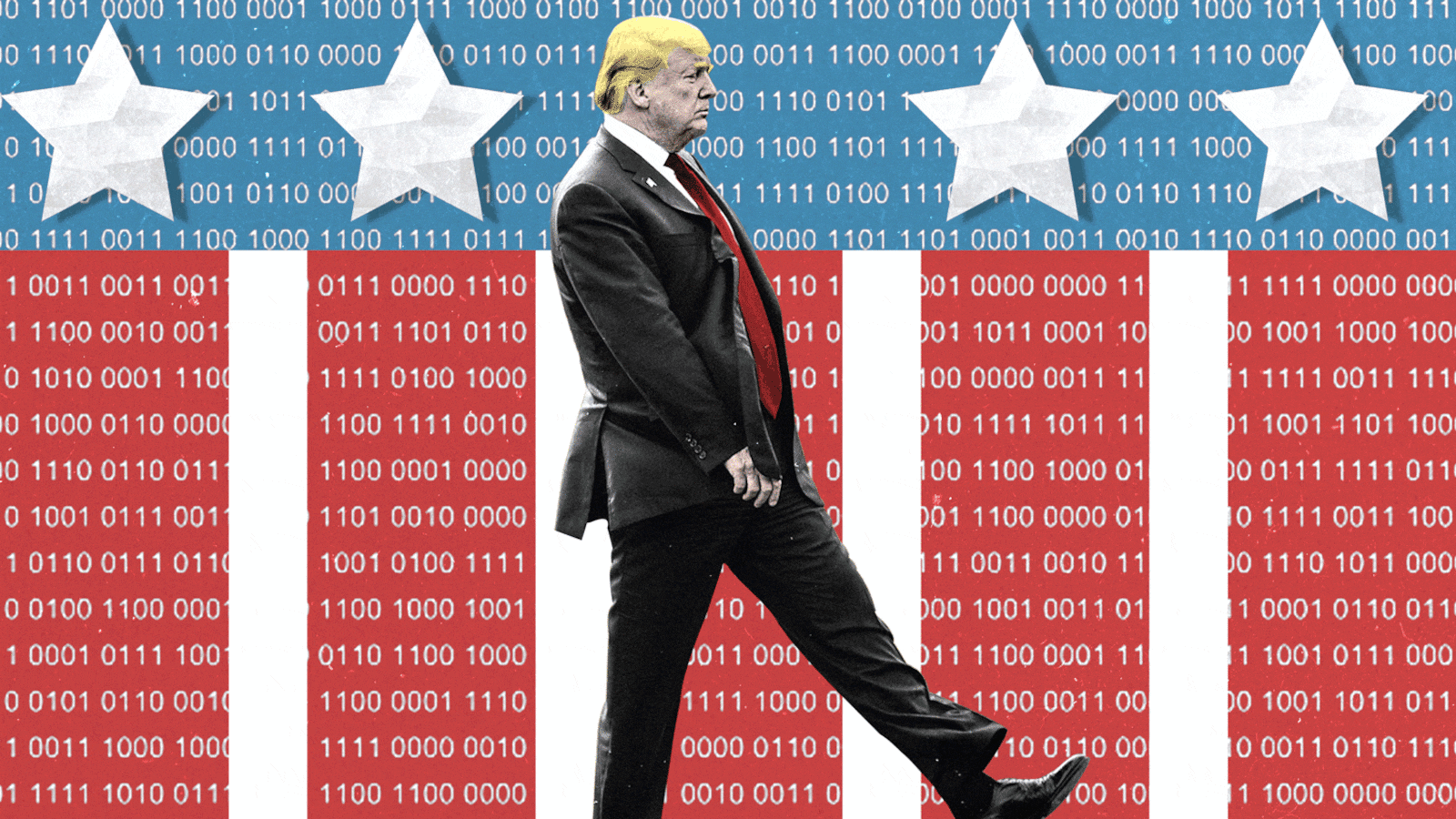It’s time we face facts about 2020. It will be so dirty, brimming with disinformation, and packed with hackers that it'll make 2016 look like a student council election.
On Sunday, Rudy Giuliani went on CNN’s State of the Union and declared, “There's nothing wrong with taking information from Russians.”
“You're assuming that the giving of information is a campaign contribution,” Rudy averred to CNN’s Jake Tapper. “Read the report carefully. The report says we can't conclude that because the law is pretty much against that. People get information from this person, that person.”
Talk about defining deviancy down.
Of course, Rudy’s interpretation is open to debate. My read of the Mueller report suggests that opposition research may constitute a “thing of value,” which is tantamount to a contribution. The question, though, is whether anyone on Trump’s team “knowingly and willfully” violated the law. Intent is hard to prove.
But let’s assume that Rudy is correct about the legality (he’s a lawyer—I’m not). As the president’s personal attorney, his words have weight. And taking Rudy at his word, why wouldn’t a 2020 campaign be willing to avail itself of information from Russia, Turkey, or China? And why wouldn’t Russia, Turkey, or China oblige?
Back in February, The Daily Beast asked every presidential campaign running or exploring a run “whether they would commit to not knowingly using or referencing hacked material that appears online on grounds that it may have been obtained illegally.”
The only campaign that refused to make such a commitment was Donald Trump’s.
Of course, unilateral disarmament rarely lasts more than one election cycle. It didn’t take long for Michelle Obama’s “When they go low, we go high” line to morph into, “When they go low, we kick them.”
There’s a real danger in normalizing this behavior.
I’m not suggesting Trump should have been indicted, or that he should be impeached. What I am suggesting is that a lack of consequences creates the impression that you can take information from a foreign national with impunity.
In the wake of Watergate, a generation of American politicians and operatives were chastened. Being a straight arrow (or pretending to be) became a selling point. What lessons are being derived from the narrative Rudy is spinning about the Mueller report?
And if American politicians and political operatives are learning the wrong lessons, what are we then teaching our foreign adversaries?
In response to the hacking, the United States imposed sanctions on Russian individuals and organizations. But Russian efforts to undermine our elections worked beyond their wildest dreams.
Prior to the midterms, U.S. intel chief Dan Coats warned, "We assess that Russia is likely to continue to pursue even more aggressive cyberattacks with the intent of degrading our democratic values and weakening our alliances." And as the Beast noted in February: “Russian hackers did target candidates in the midterm cycle and the fear among operatives and cybersecurity experts is that the same pattern will hold true in [the 2020] election.”
Even if campaigns vow to steer clear of hacked material—and Team Trump hasn’t done that—there’s still a serious danger that information will be disseminated via the media and/or social media. What complicates matters is that disinformation could be just as dangerous as hacked information.
This isn’t just the kind of scam that your mom might fall for on Facebook (though that’s still a problem). Disinformation is getting increasingly sophisticated. As The New York Times reported last year, “Artificial intelligence video tools make it relatively easy to put one person’s face on another person’s body with few traces of manipulation.”
The potential for foul play is sobering. “It’s not hard to imagine this technology’s being used to smear politicians, create counterfeit revenge porn or frame people for crimes. Lawmakers have already begun to worry about how deepfakes could be used for political sabotage and propaganda,” the Times continued.
We are entering an era where we can expect our campaigns to play dirty and our adversaries to interfere in our elections. And technology is outpacing our ability to filter out propaganda. Why don’t these issues rank on a top-20 list of things we need to worry about?
In a serious world, every campaign would have to vow not to use hacked data or information. Media outlets and social media platforms would craft policies that reflect both the law and ethical concerns. And our government would aggressively prioritize cybersecurity and election integrity.
Why aren’t we doing any of those things? The 2020 election is right around the corner. Few people appreciate how destabilizing things could be if we don’t get serious about keeping the trains from careening off the rails.







